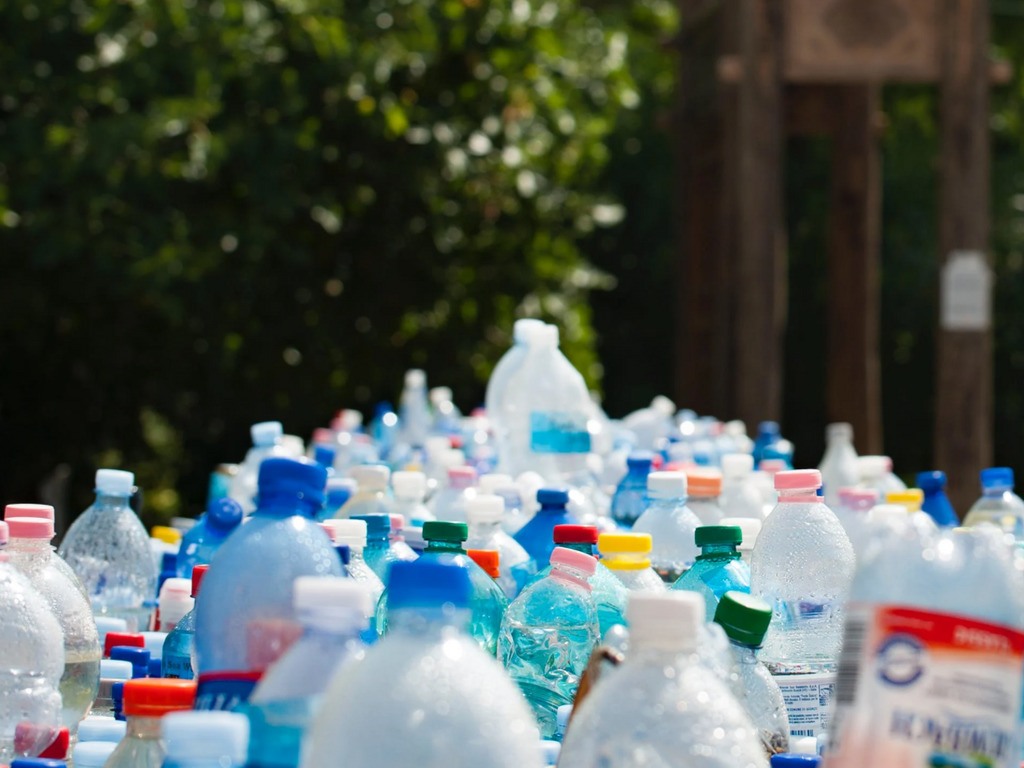4 Mins Read
In a recent announcement, Hindustan Unilever (HUL) plans to achieve 100% plastic waste collection this calendar year meaning that it will collect and process more plastic packaging waste than the company’s own plastic usage.
Mumbai-based Hindustan Unilever, the leading Indian FMCG company that is a subsidiary of the British-Dutch multinational consumer goods giant Unilever, with a market cap of INR 40,000 crore (approx. US$0.54 billion), HUL has several brands under its name like Lux soap and Lipton tea, along with several daily use products that are sold at over 8 million outlets.
The giant plans to achieve 100% plastic waste collection by ensuring safe recovery as well as recycling of over 1 lakh tonnes (0.1M tonnes) of post-consumer plastic waste through an Extended Producer Responsibility (EPR) program. EPR is a policy approach under which producers are given the responsibility either financially or physically to treat or dispose of post-consumer products.
In doing so, HUL stands to become the first FMCG company of such a large scale to achieve plastic waste neutrality.
In a press release seen by Green Queen, HUL’s chairman and managing director Sanjiv Mehta said that this goal is in line with India’s Swachh Bharat Abhiyan (Clean India Mission), a country-wide campaign started by the Government of India. “Our vision is one where key stakeholders work together to ensure that plastic stays in the economy and out of the environment. As a responsible company, we are committed to playing our part. We believe that this is a collective responsibility, and each stakeholder needs to play an active role in managing plastic waste.”
With HUL’s support, we have carried out the disposal of large quantities of plastic waste since 2018 in a safe and environment-friendly manner. The partnership has also helped positively impact the lives of workers involved in waste collection. HUL has been the pioneer in implementing EPR in India and their support has helped our start-up grow and expand into new territories
Natasha Zarine, CEO of CARPE (Centre for Applied Research and People’s Engagement)
According to an application submitted by environment group Vanashakti before the National Green Tribunal (NGT) back in December 2018, every day, Mumbai dumps 80 – 110 tonnes of plastic waste into drains and water channels.
Covering more than 100 towns across India, HUL has joined forces with various organizations for collecting plastic waste including Saahas, Carpe, Recykal, Planet Savers, RaddiConnect, Geoycle and Ramky Enviro. Through these partners and the local governing Municipal Corporations, HUL has advised housing societies and commercial establishments on how to better the plastic waste collection infrastructure in their areas.
HUL is also working with the United Nations Development Programme (UNDP) and the international management consulting firm Xynteo through which material recovery facilities have been set up in Mumbai to showcase the cost-effectiveness of inclusive end-to-end waste management solutions.
CEO of CARPE (Centre for Applied Research and People’s Engagement), Natasha Zarine shared that with HUL’s support, they have carried out disposal of large quantities of plastic waste since 2018 in a safe and environment-friendly manner. “The partnership has also helped positively impact the lives of workers involved in waste collection. HUL has been the pioneer in implementing EPR in India and their support has helped our start-up grow and expand into new territories. This helped us to work towards our national ambition of Swachh Bharat”.
Aside from this, last year, the company along with the Education Department of Maharashtra and Xynteo launched a digital school curriculum that aims to educate kids on the need for segregation, collection and safe disposal of waste reaching nearly one lakh children during its pilot and is presently being expanded across the state.
Since 2018, the company has ensured that over 1.2 lakh tonnes (0.12M tonnes) of post-consumer-use plastic waste are safely disposed posing a low threat to the environment. Last year, the company had collected and facilitated environmentally safe disposal of almost 60,000 tonnes (0.06 M tonnes) of plastic waste.
HUL’s Executive Director Supply Chain, Willem Uijen explained: “This is in line with the commitment we have made for a circular economy. We have taken a head start on implementing the proposed Extended Producer Responsibility (EPR) framework for plastic waste management. HUL has also developed an ecosystem of partners enabling the collection and safe processing of plastic packaging waste. We have now scaled up our joint efforts to collect more plastic packaging waste than our total plastics footprint, four years ahead of what we previously thought was possible.”
Apart from HUL, Nestle India has already reached plastic neutrality, while Dabur is expected to do so by March 2022 by collecting, processing, and recycling 22,000 tonnes of post-consumer plastic waste from across India.
ITC, an Indian multinational with businesses including the FMCG sector, also has a model for sustainable management of multi-layered plastic (MLP) packaging waste and in 2020-21, ITC plans to collect more than 28,000 tonnes of MLP waste.
Back in November of 2020, HUL’s parent company Unilever began a major refill trial in supermarket chain Asda’s Middleton store in the British city of Leeds in an effort to reduce plastic waste.
These initiatives are a part of Unilever’s commitment to halve its use of virgin plastic along with making its packaging reusable, recyclable or compostable within the next five years, which is key if we want to reduce the plastic pollution crisis, which will leave behind 710 million tonnes of plastic waste even if we curb use by 80%.
Hence, the company has been setting up various sustainability campaigns of late, from announcing that it will eliminate all fossil fuels in its cleaning products by 2030, to establishing a US$1.1 billion climate fund and also commiting to show carbon labels on every single one of its 70,000 products.
Additionally, Unilever partnered with other industry giants including Microsoft and Nike to set up “Transform to Net Zero”, a new initiative aimed at helping other businesses reach net-zero carbon emissions by 2050.
Lead image courtesy of Mali Maeder.




